PRESERVING A MILITARY LEGACY FOR FUTURE GENERATIONS
The following Reflections represents SP 4 Patrick Newman’s legacy of his military service from 1970 to 1973. If you are a Veteran, consider preserving a record of your own military service, including your memories and photographs, on Togetherweserved.com (TWS), the leading archive of living military history. The following Service Reflections is an easy-to-complete self-interview, located on your TWS Military Service Page, which enables you to remember key people and events from your military service and the impact they made on your life. Start recording your own Military Memories HERE.
Please describe who or what influenced your decision to join the Army.

I came from an extremely abusive childhood; my mother constantly abused my siblings and me physically and psychologically. If I did not get my ass kicked 3-4 times per week for some minor infraction, that was a good week. I was constantly told that I would never amount to anything. Around my 13th birthday, my parents found an adult whom they felt would be a good role model and mentor for me. It turned out that this person was a pedophile, and he abused me until I was 16 years old. I tried to speak to my parents about this type of abuse, but they thought I was lying.
When I turned 16, I could no longer take abuse from my parents or our family friends. I obtained the handwritten birth certificate that my parents received from the hospital after I was born. This was not the “Official” birth certificate kept at the Clark County, Chicago hall of records office. With a friend’s help, I changed my DOB to reflect my age as 18. During that time, the need for volunteers to join the Military was incredible, and I am sure my recruiter looked the other way regarding the forgery.
I was now on my way to the induction center in downtown Los Angeles where I was sworn in as a member of the US Army.
Whether you were in the service for several years or as a career, please describe the direction or path you took. What was your reason for leaving?
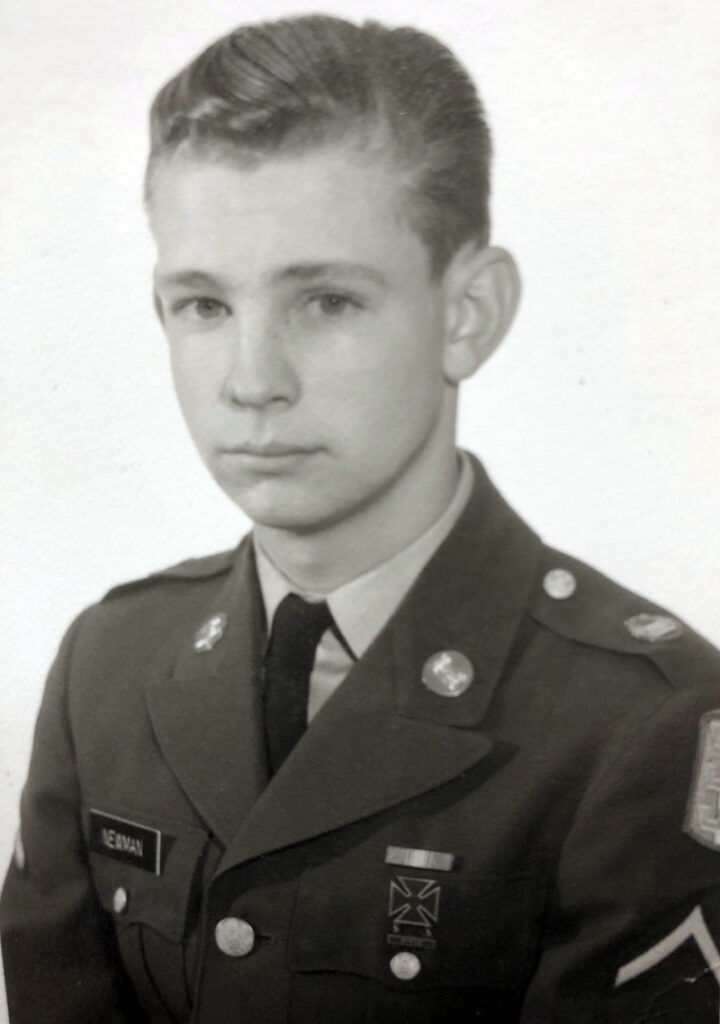
When I entered the Military, I had no direction and lived my life “one day at a time.” I was a terrible soldier during BCT at Fort Ord, CA. I was not in physical shape, had never fired a weapon, and was a terrible student, so I struggled. It was not until approximately week five that I finally started to come around. Unfortunately, I came down with the flu and was in the Base Hospital for five days, and I missed a good portion of the training. In particular, I missed basic first aid and had to play catch up. I did not pass first aid for my proficiency test and was held back until I could pass.
After leaving Fort Ord, CA, I was sent to Fort Leonardwood, MO, for AIT, where I trained to become a 12A10 Pioneer; after my dismal performance while in BCT, I came into my own at Fort Leonard Wood and felt like I was becoming a US Soldier. I finished AIT training in the top third of my class.
After finishing AIT, I knew that my next stop would be Vietnam. I was an RA and looked forward to going to “War.”
I arrived at Cam Rahn Bay, Vietnam, where I was assigned to the 101st Airborne Division. I still remember looking at the large painted map of the country and where the different Divisions and units were in the country. I started at the bottom of the map and eventually made it up to the very top of South Vietnam, where the Screaming Eagle emblem was painted. Holy shit, I thought a lot of crap was going on up there.
My tour of duty in Vietnam went from boredom, building, and reconstruction to sheer terror during rocket attacks and firefights. It was probably no different than most of the troops who had served there. Vietnam changed my view in the way that I looked at things regarding “the big green machine.” My tour went from, let’s win this war too; we will end all of this and go home with our tails between our legs. After all, we were American soldiers, and we won wars.
Because of what I saw in Vietnam regarding how we were lied to, I decided to leave the Military.
If you participated in any military operations, including combat, humanitarian and peacekeeping operations, please describe those which made a lasting impact on you and, if life-changing, in what way?
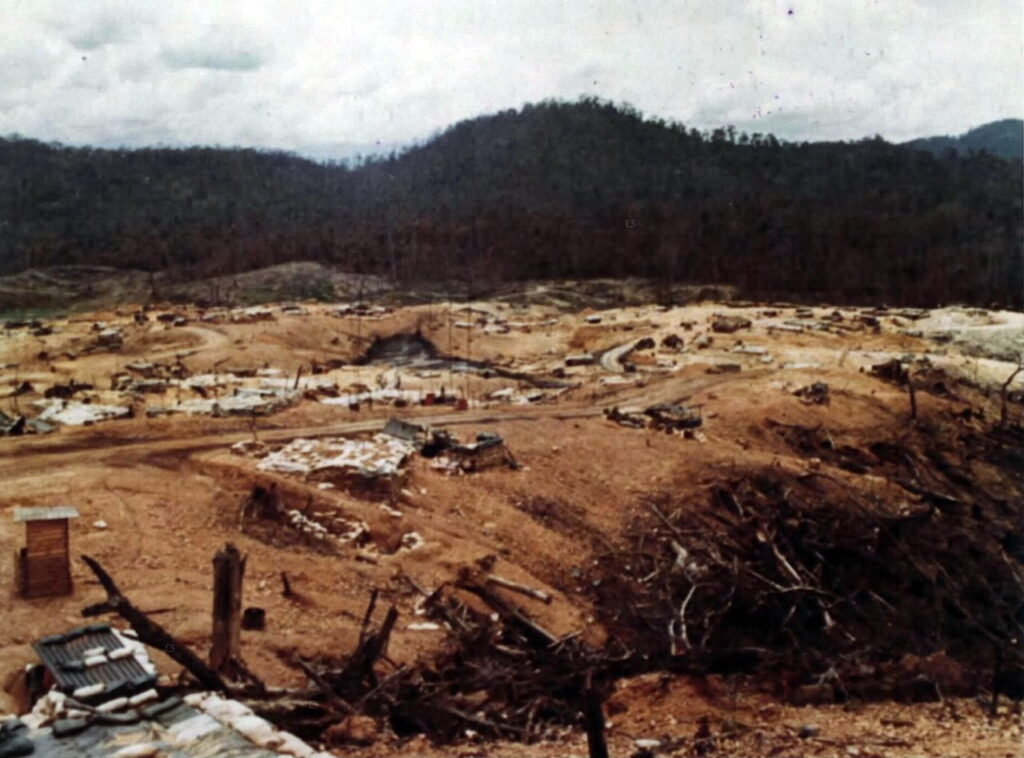
I performed in a lot of different military missions. As an Engineer, my duties varied. At times, rappelling into an LZ and clearing it so that the Hueys had a place to land, we opened and closed fire support bases and went out and blew up tunnels and bunkers after the Infantry had found them. My job was not as bad as the local grunts, but dangerous nonetheless. My company took many casualties during my time with them.
In 1972 the 101st had left Vietnam, and the remaining members of my company were scattered within units all over the country. I was assigned to MACV Team 5, stationed at the north end of the Phu Bai combat base. During the Easter Offensive, I worked with the ARVN 1st Infantry Division in I Corp. During the NVA invasion of South Vietnam, I was on Firebase Bastogne and then evacuated back to Firebase Birmingham. Late in April of 1972, I was wounded while defending Birmingham from a tank round that destroyed a bunker that I was walking into. I was then medivaced out to DaNang, sent to Japan, and then to Letterman Hospital in San Francisco, where I remained for nine months.
I had always been told that the ARVN were unwilling to fight, but my experience with the ARVN 1st Infantry appeased those thoughts. These “little people” fought their asses off. I am sure it was because of their Commander and Officers, who were hard chargers.
Did you encounter any situation during your military service when you believed there was a possibility you might not survive? If so, please describe what happened and what was the outcome.
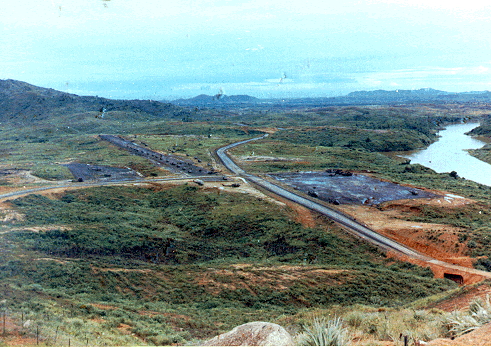
In Early December 1971, the scuttlebutt was that the 101st would be standing down and heading back to the States. There were also rumors that early outs were being given if you arrived back in the States with less than six months of active duty service. After being in a combat zone, I knew it would be difficult to transition back to a stateside soldier. For this reason, I extended my Vietnam service for another six months. The 1st Brigade of the 101st Airborne did stand down and returned to Fort Campbell, KY, in January 1972.
As the Brigade was in stand-down status, I was assigned to a four-man team, and our job was to build boxes that would be loaded with various items sent back Stateside. Eventually, the 1st Brigade abandoned Camp Eagle, but the 4 of us were still involved with our duties of building boxes. Sometime in February 1972, we were sent to Division HQ located at Phu Bai, RVN. I was the only person on my team with a Military driver’s license, and at that point, my job was ferrying items to Fire support bases, Vehgel Bastogne, and Birmingham.
My team had finished all of our projects, and we were all to be reassigned to other units in the country. One person went to Saigon and was assigned as an MP, while two others became door gunners further South. I was assigned to MACV but remained in the I Corp area at Phu Bai. Then came the Easter offensive in April 1972. I was on FSB Bastogne in late April, just after the NVA rolled over Quang Tri.
The NVA were using tanks and thousands of troops in an attempt to finally unify their country. The ARVN was being pushed back.FSB Veghel and Bastogne fell, and we all pushed further east to FSB Birmingham. In late April 1972, I was wounded by a round from an NVA tank and was medivaced back to the 95th EVAC Hospital in DaNang.
Of all your duty stations or assignments, which one do you have fondest memories of and why? Which was your least favorite?
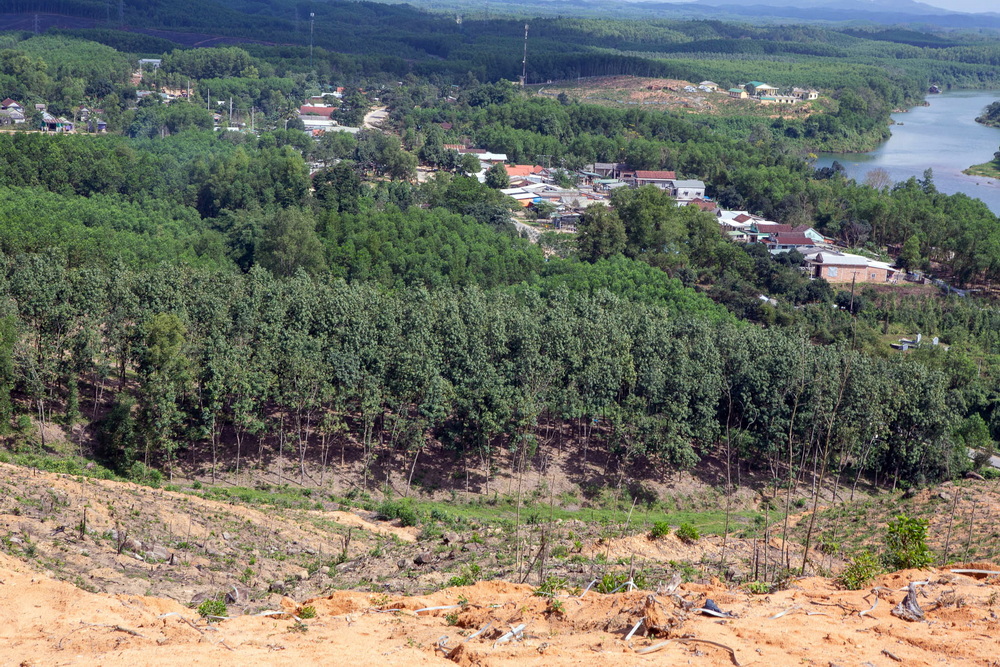
I enjoyed all of my duty stations; each one was special and different in its own way. When I was stationed at Camp Eagle, RVN, this was our Brigade base camp. I was rarely ever there for any period of time, but it always felt good to get back to “the rear” for some decent chow and beer. Most of my in-country time was spent on many of the Brigades Fire Support Bases. The FSBs are where my fondest memories of Vietnam occurred, mainly because of the camaraderie and experiences shared.
The oddest duty station was while I was at MACV headquarters in Saigon. The first time I walked into the mess hall, it seemed like I had just stepped into another world. The building resembled something from Stateside and did not seem like it belonged in Vietnam at all. I had just come from I Corp, where living conditions were fairly primitive, to III Corp, where conditions were quite unbelievable.
From your entire military service, describe any memories you still reflect back on to this day.
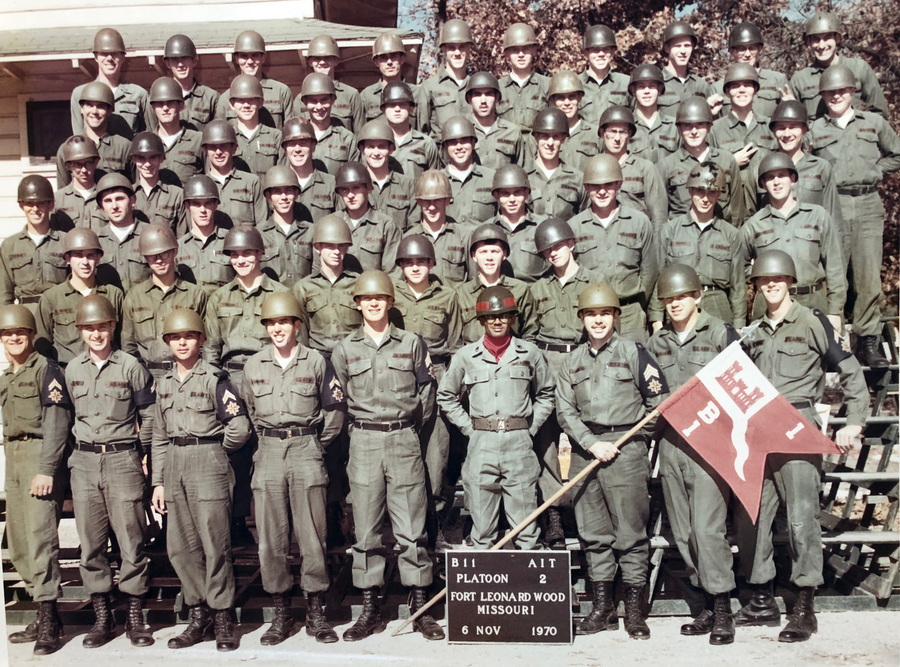
Camaraderie is the word that comes to mind. There is nothing that I would not have done for the people from my squad or Platoon. Friendships and relationships from the Military are stronger than any I have had before or since. I am sure that it has something to do with knowing each and every day. It could all be taken away in an instant.
What professional achievements are you most proud of from your military career?
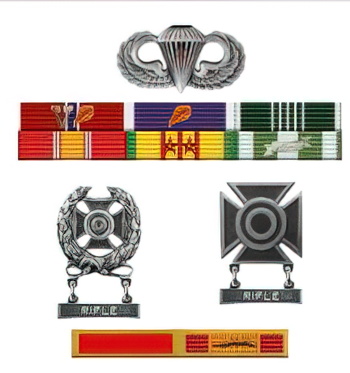
I received a Bronze Star and the Army Commendation medals. As the unit was in stand-down status, I was the CQ runner one evening and felt very proud when I saw my commendations on the Clerks desk.
My Bronze Star from the 101st was for meritorious service, which made me feel pretty proud. My second Bronze Star was for Valor during the Easter Offensive of 1972.
Of all the medals, awards, formal presentations and qualification badges you received, or other memorabilia, which one is the most meaningful to you and why?
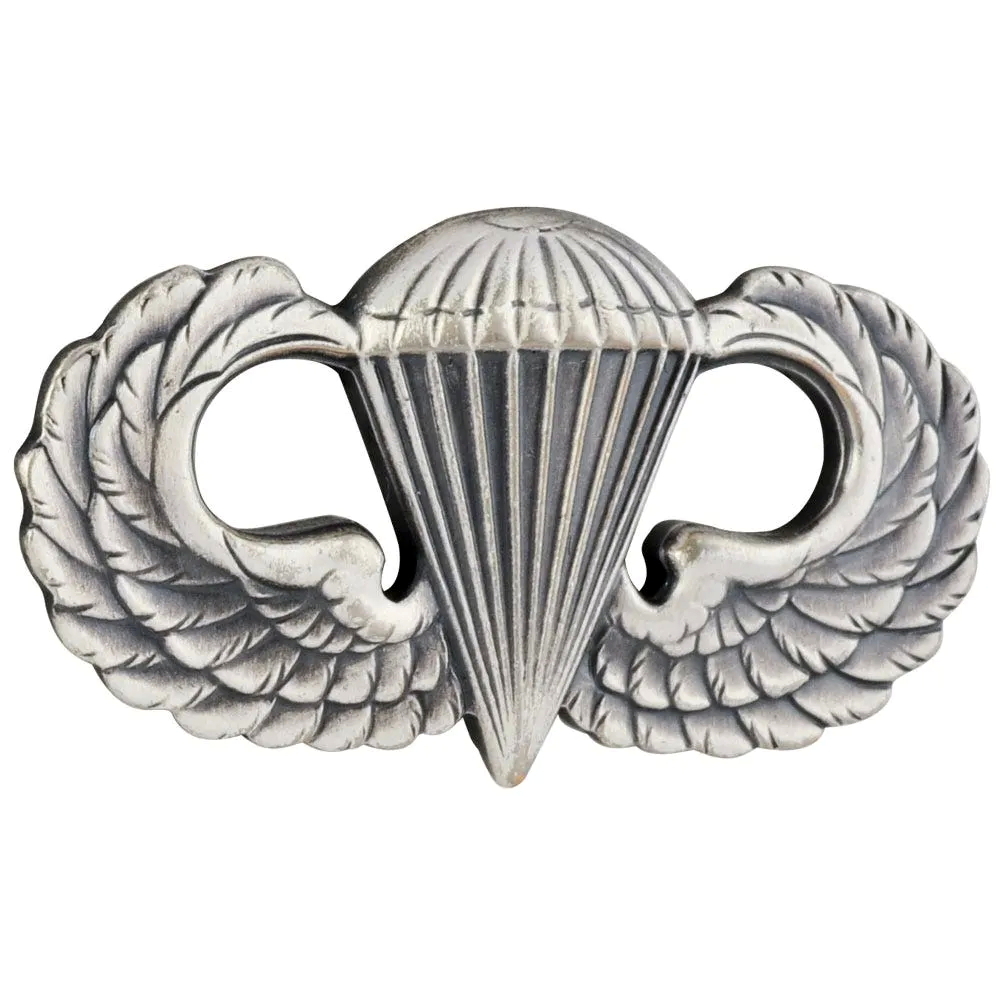
Of all things, my poncho liner. I was able to bring it back, and I still have it. My poncho liner kept me fairly warm during those cold monsoon nights in I Corp. I also cherish my “dog tag” that I wore in the bottom lace of my jungle boot.
I am also pretty proud of my Airborne wings. As the saying goes, only bird shit and fools fall from the sky. I am one of those fools.
Which individual(s) from your time in the military stand out as having the most positive impact on you and why?
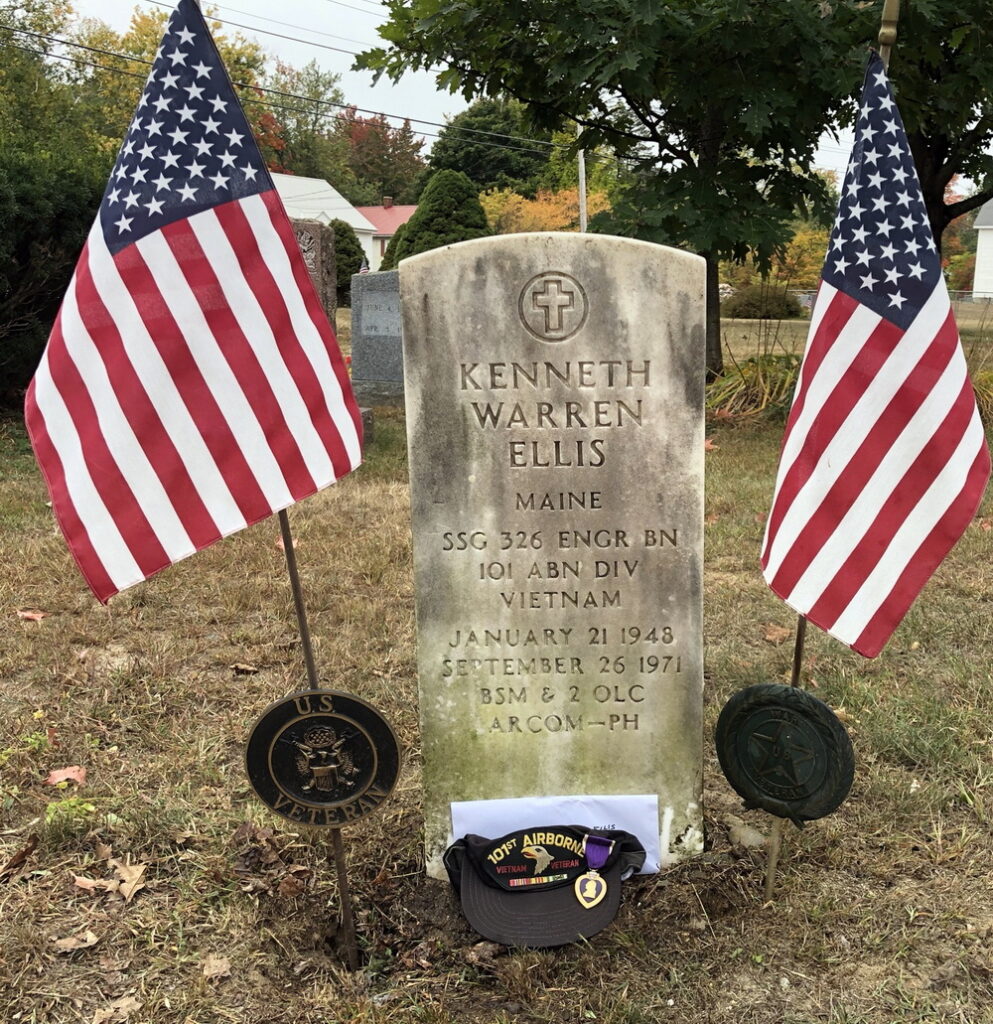
Without a doubt, SSG Kenneth Ellis. SSG Ellis was on his second tour when he was killed in a minefield in September 1971. He mentored me and was a role model. Seeing him die was the most challenging day of my life in Vietnam. I think of him still, almost daily.
List the names of old friends you served with, at which locations, and recount what you remember most about them. Indicate those you are already in touch with and those you would like to make contact with.
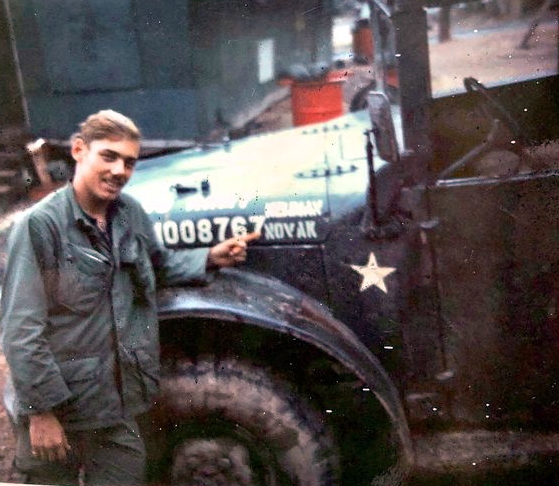
Gerald (Gerry) Lynch. We arrived at A Co 326 Engineers on the same day and were assigned to the same Platoon and squad. His mom sent the best care packages. Gerry and I talk at least once a year.
Luther (Lou) Melton was probably my best friend. We arrived in-country at about the same time. We have not spoken since we said goodbye in January 1972. I have looked for him ever since. The closest that I have come to finding him was locating a cousin from Texas who did not have any contact information regarding his whereabouts. I have since learned that he passed in 2010.
David Dionne, he and I were together when our squad leader (SSG Kenneth Ellis) died in September 1971. We spoke often, but when I was in Maine in 2010, I visited him and sadly found out that he had passed away a few months earlier.
Anthony “Butch” Novak, whom I just recently re-connected with
Can you recount a particular incident from your service which may or may not have been funny at the time but still makes you laugh?
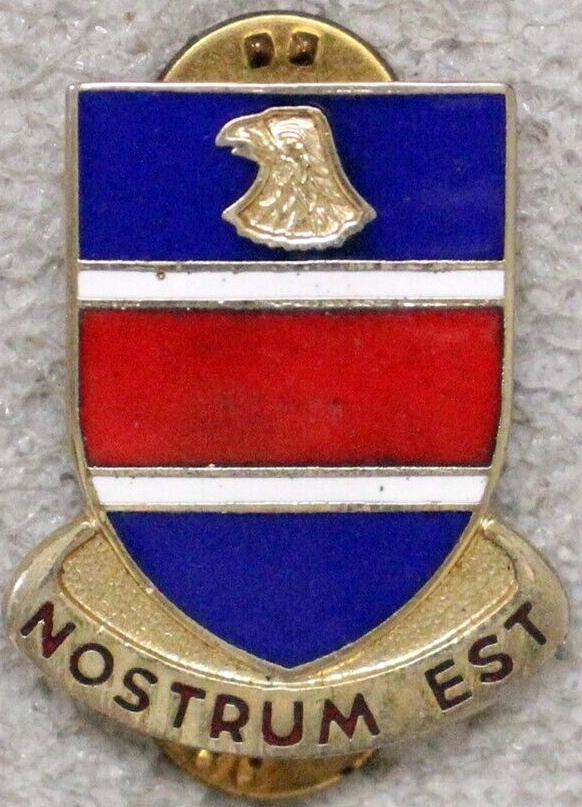
Below FSB Birmingham was our “water point.” The water purification equipment was set up near a small bridge under Hwy 547. Whenever we needed to go down to the water point, we always brought hand grenades which we used for fishing. I was a kid from Los Angeles who only ever used a fishing pole, but grenades worked a whole lot better. We never ate the fish, but we did trade them for items that the Montagnard tree cutters made as they passed our location a couple of times per day.
What profession did you follow after your military service and what are you doing now? if you are currently serving, what is your present occupational specialty?
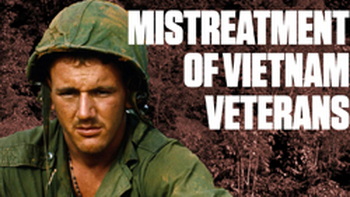
After the Military, I was completely adrift. In the 1970s, either no one cared, or they hated the fact that you were a soldier in Vietnam. I felt proud of my Military service but would not tell prospective employers because of the stigma attached.
I managed a service station in Minneapolis, drove Limousines in Los Angeles, became a sewer and drain cleaner and paint contractor, and finally ended my career as a skydiving instructor with over 16,000 skydivers.
These days I am retired and travel as I please, with at least one big trip out of the country lasting six months or more.
What military associations are you a member of, if any? What specific benefits do you derive from your memberships?
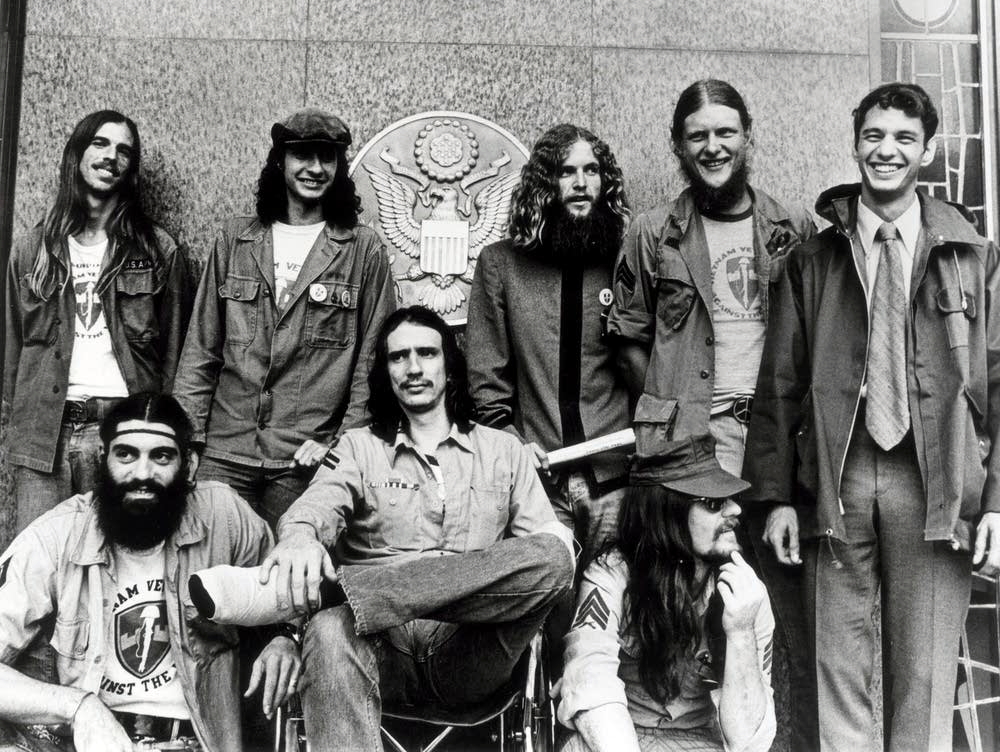
I went to a couple of Military associations but did not feel they were for me. Vietnam Vets did not feel really welcome since most of the Vets manning these associations at the time were from WWII, and our long hair and attitudes did not fit in.
In what ways has serving in the military influenced the way you have approached your life and your career? What do you miss most about your time in the service?
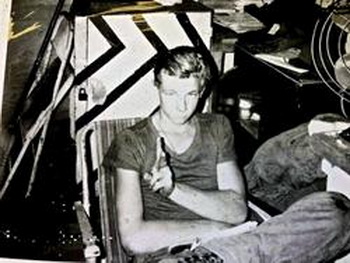
The Military gave me a sense of direction and commitment to seeing a project through. I am much more disciplined. I also know what it is like to have served, and I feel great pride when someone comes up to me now and thanks me for “my service.”
Based on your own experiences, what advice would you give to those who have recently joined the Army?
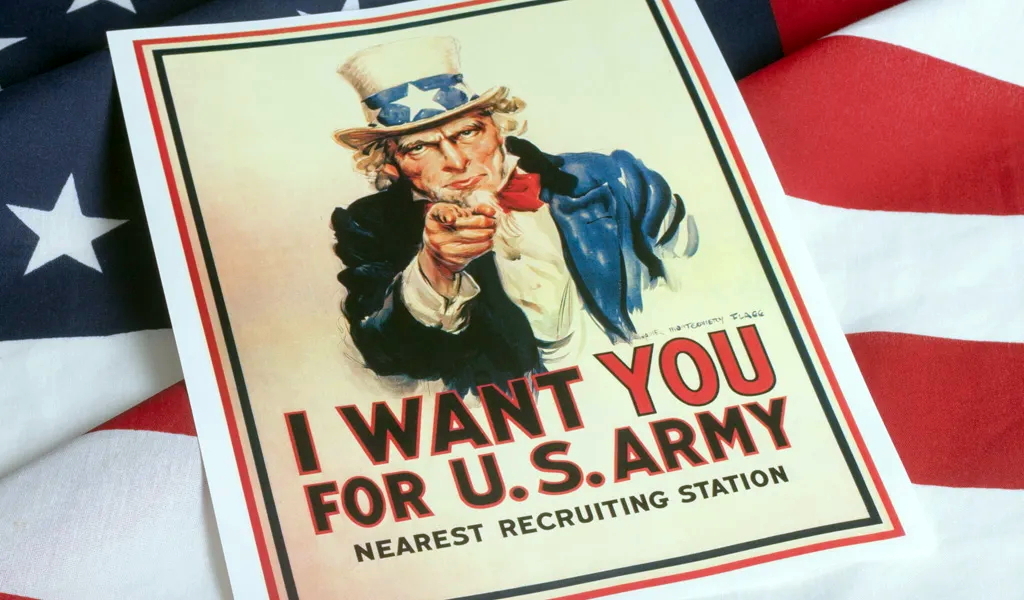
The cliche that I genuinely believe in is the Marine Corps motto, “be all that you can be.” Do the very best with what you are given, and don’t piss and moan about the job that you are being asked to do. The Army will give you a great sense of pride that civilians will never know.
In what ways has togetherweserved.com helped you remember your military service and the friends you served with?
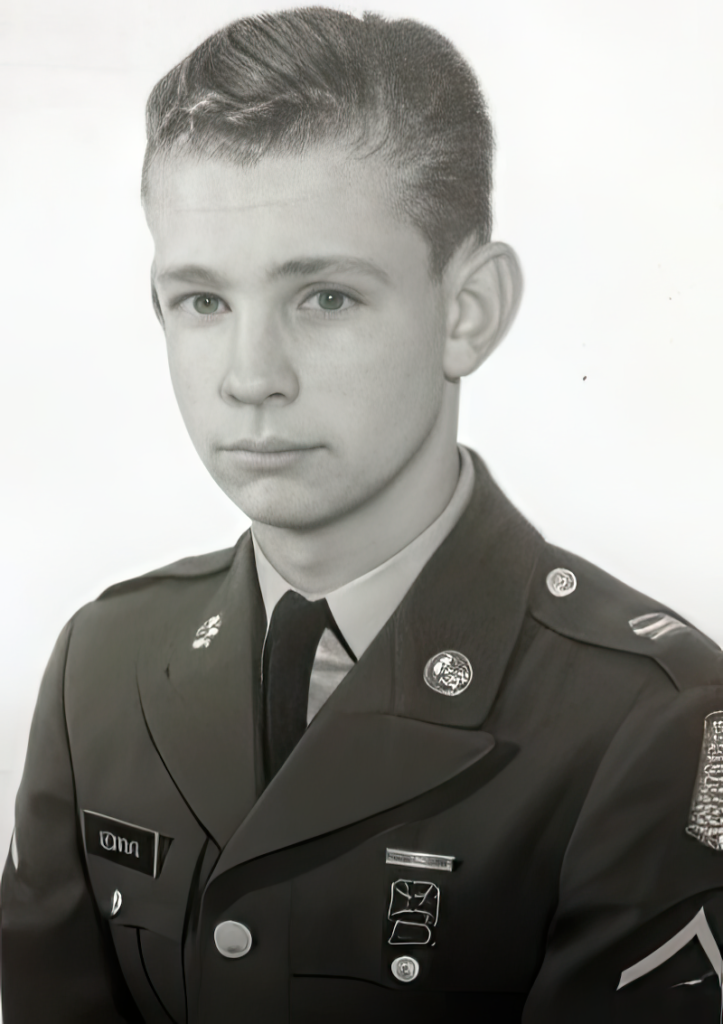
TWS has been positive in my later years, and reading the stories and bios is greatly enjoyed.
PRESERVE YOUR OWN SERVICE MEMORIES!
Boot Camp, Units, Combat Operations
Join Togetherweserved.com to Create a Legacy of Your Service
U.S. Marine Corps, U.S. Navy, U.S. Air Force, U.S. Army, U.S. Coast Guard
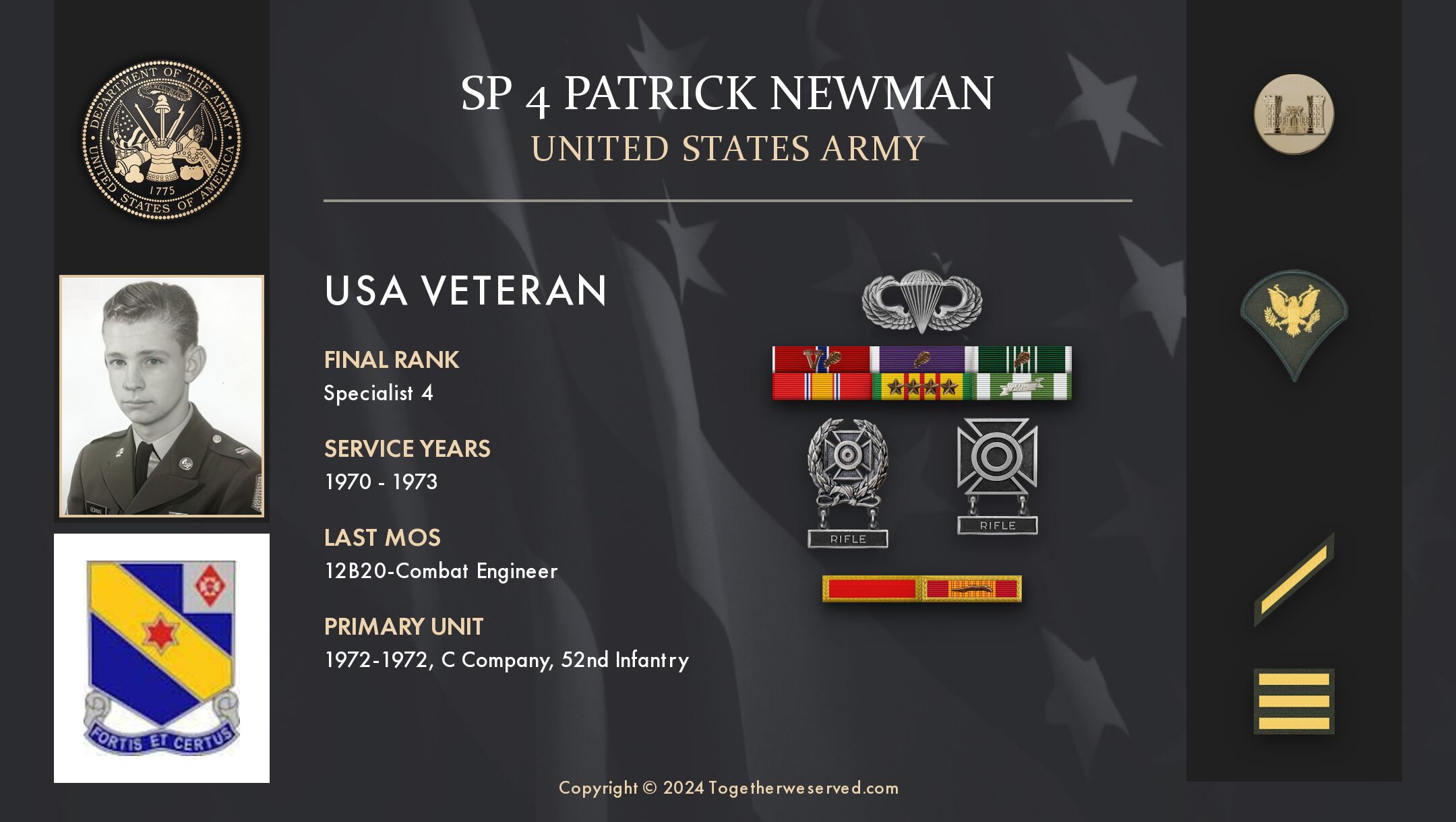
I went to Ft. Polk, La( Leesville) from there to Aschaffenburg, Germany 1st.batt.7th.mech.infatry..
From basic (( pcpt) test, to ait I lost right shoulder (torn rotator cup) 11b/71b20. Now I put my dd214, at (Waco regional) seems I didn’t exist anymore…